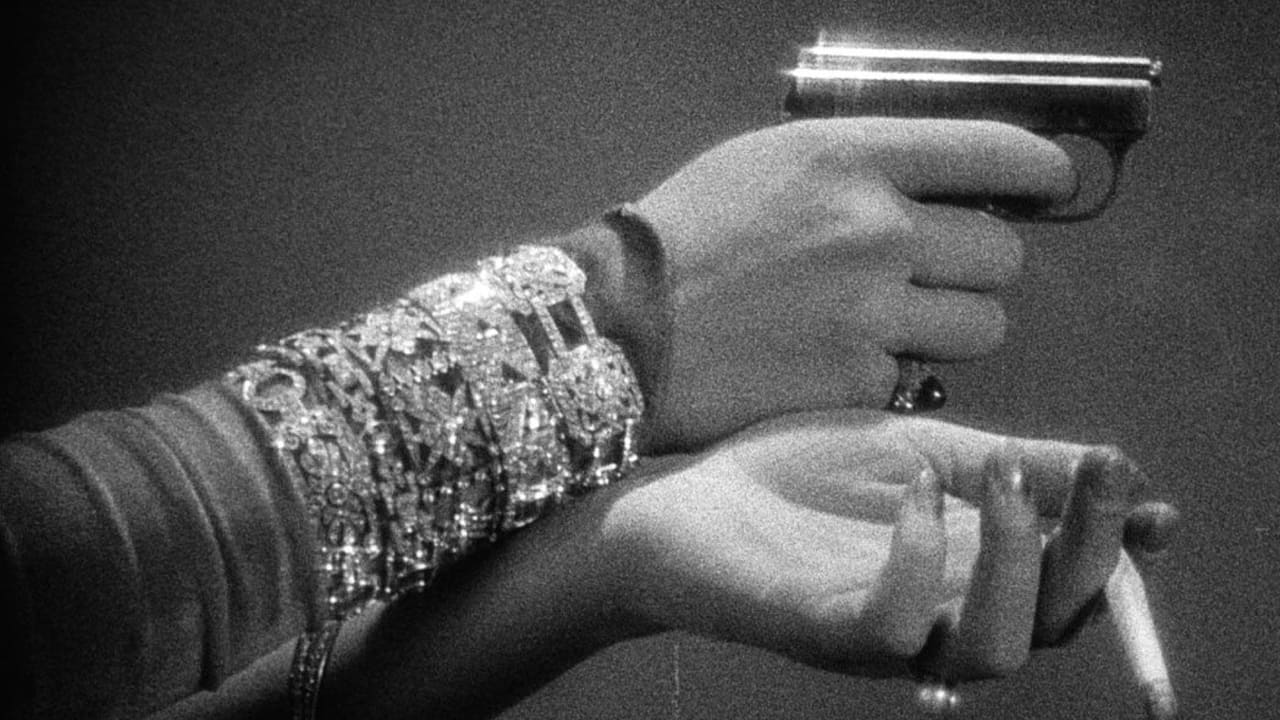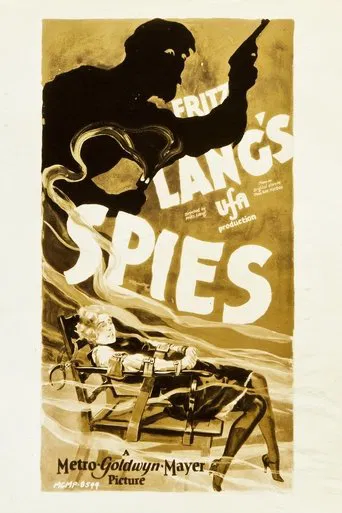

An action-packed slog
... View MoreIt's an amazing and heartbreaking story.
... View MoreIt is neither dumb nor smart enough to be fun, and spends way too much time with its boring human characters.
... View MoreThis is ultimately a movie about the very bad things that can happen when we don't address our unease, when we just try to brush it off, whether that's to fit in or to preserve our self-image.
... View MoreI first saw this movie many years ago, completely unrestored and in a severely edited version but I was still carried away by the breath taking style and the twists and turns of the plot about a super spy who wanted world domination. So I was very happy to find this Kino edition with an hour of previously unseen footage. Like Lang's earlier film, "Dr. Mabuse", Haghi (Rudolph Klein-Rogge) is a master criminal extraordinare who leads several different lives - as a bank president and also as a circus clown. He is always one step ahead of the Russian, Japanese and German secret service, steals treaties and operates a radio network that brings him up to date headlines through a transmitter in his office. He has men working for him day and night, including a fruit vendor who stealthily parks his wagon in the street, cutting off a car chase and starts throwing cocoanuts which are really hand grenades."Throughout the world strange events transpire".... It is the world of spies and secret agents and disappearing ink and once again Lang holds up to ridicule the pompous bureaucrats and petty officials. A local vagrant has received a summons to appear before the local police. Willy Fritsch's introduction is a marvel of pantomimic acting but after being hustled into the station we find that he is really "No. 326" - one of the country's sharpest agents. He is put on the trail of Haghi and Haghi, in turn, puts one of his most beautiful operatives, Sonia (Gerda Maurus) in his way to seduce him. It is love at first sight (a bizarre date has them at a boxing match which also doubles as a nightclub, when the match is finished patrons instantly start dancing around the ring). When Haghi finds Sonia questioning her loyalty he captures and imprisons her at headquarters then sends another look alike agent, Kitty (Lien Deyers) out in her place. It is Kitty's job to charm the Japanese diplomat (Lupu Pick) and she does, appearing at first as a waif caught in the rain, then gradually insinuating herself into his life - until she has all the secret documents and his only recourse is to commit hari-kari.The last thirty minutes starts with an explosive train crash - both Sonia (who is on one last mission - Haghi says if she will fulfill it he will spare "No. 326"'s life, but of course he is lying) and "No. 326" are aboard. From then on there is a non stop last minute rescue and then on to the music hall for a final showdown.Rudolph Klein-Rogge was a master character actor but because most of the time Haghi was behind a desk, he didn't have a lot to do. Willy Fritsch went on to become Germany's (and Hitler's) number one actor, more at home in frothy, frivolous musicals. Lien Deyer was a discovery of Lang's and "Spies" was her first film. She and her husband fled to America during the upheaval of Germany in the 1930s but after that nothing much went right for her.
... View MoreFritz Lang's silent crime thriller pits a government agent (Willy Fritsch) against a scheming international banker who is stealing government documents. Considered an overlooked, but crucial part of Lang's impressive canon and an important influence on the thrillers of Alfred Hitchcock; it does have some first-rate cutting and painterly images of the city's dense layering. However, (this version at least) is simply way too long. One can anticipate what is going to happen later in the film with more than ½ hour to go. The film could easily afford to lose some where in the order of one hour of its footage. A necessary viewing for anyone interested in the work of Fritz Lang all the same.
... View MoreFritz Lang, undeniably one of the greatest and most influential film-makers in all of cinema, is one of my favorites and, from his early work which remains, perhaps, his most important I only had a few of his surviving films still to catch up with. SPIONE was one of them and, now that I've watched it, I can confirm its stature as one of his very best, if relatively little-known.The film is basically a follow-up to Lang's seminal two-part DR. MABUSE, THE GAMBLER (1922) and, indeed, it's Rudolph Klein-Rogge himself who originated the role of Mabuse who plays the evil crimelord here (called Haghi and who is made-up to resemble Lenin!). SPIONE follows much the same pattern of intrigue, thrills and action; however, the film's narrative structure is not straightforward but rather elliptical and, even though ostensibly dealing with the conflict which may arise were a treaty to fall into the wrong hands, several major plot points are left deliberately obscure (in fact, we never get to know what the treaty actually contains a precursor to Hitchcock's beloved "McGuffin", perhaps or what Haghi's intentions are, once he gets his hands on it!). In this respect, the social conscience so pronounced in the Mabuse diptych coming, as it did, on the heels of Germany's defeat in WWI is largely jettisoned here in favor of romance (between a female spy desired, and being blackmailed, by Haghi and the Secret Service agent who is the mastermind's nemesis), eroticism (the ensnaring of a central political figure by a vamp in Haghi's service) and technical dexterity (ensuring that SPIONE's considerable 2½-hour running-time goes by rapidly and without any longueurs, in my estimation at least, as opposed to the sluggish and rather static Mabuse). It is not inconceivable, therefore, to discern in Lang's fanciful melodrama the germ for all the spy thrillers which followed from Hitchcock to the James Bond extravaganzas and beyond.As befits a master story-teller like Lang, particularly during this most creative phase of his career, SPIONE is virtually a catalogue of memorable scenes (interestingly enough, the supplementary photo gallery includes shots from sequences that are missing in the main feature!) chief among them a ghostly visitation, a ritual suicide, a train-wreck, a police raid on a bank and a stage performance by a clown; however as opposed to the DVD back-cover, which blatantly spells out its most clever twist in emulation of the film itself, I've refrained from giving too much away about them here
... View MoreOkay, the movie doesn't feature the secret agent with the famous number 007. But after I've seen this really entertaining movie , I wondered if Ian Fleming saw this movie before he created his legendary hero. It contains everything we already know from the James Bond movies:A strong and handsome hero with a secret identity number (this time 326) - A sinister and evil villain in a wheelchair (without a white cat, but with a striking resemblance to Lenin) - A secret headquarter for the villains - An attractive heroine, who falls immediately in love with the hero - exiting action-sequences and chases (featuring a crashing train and motorcycles) etc., etc. . Willy Fritsch is very good in the role of the hero (even though you wouldn't associate him with this genre when you saw his comedies) and Rudolf Klein Rogge (the mad scientist from Metropolis) is perfectly evil. The movie is fast-paced and very entertaining, despite its length of nearly three hours. Lang shows that he is correctly regarded as one of the best german directors of all time and that he is capable of succeeding in every genre, be it science-fiction, crime or even spy-adventures.
... View More